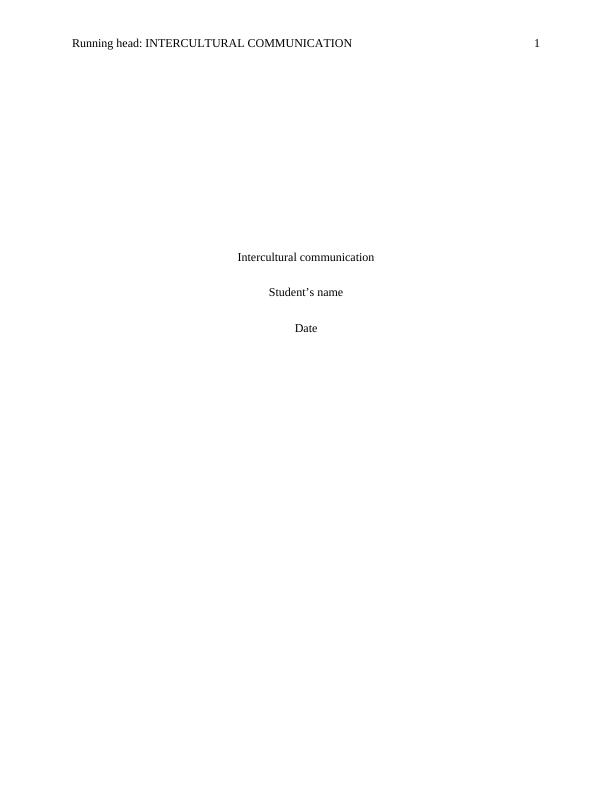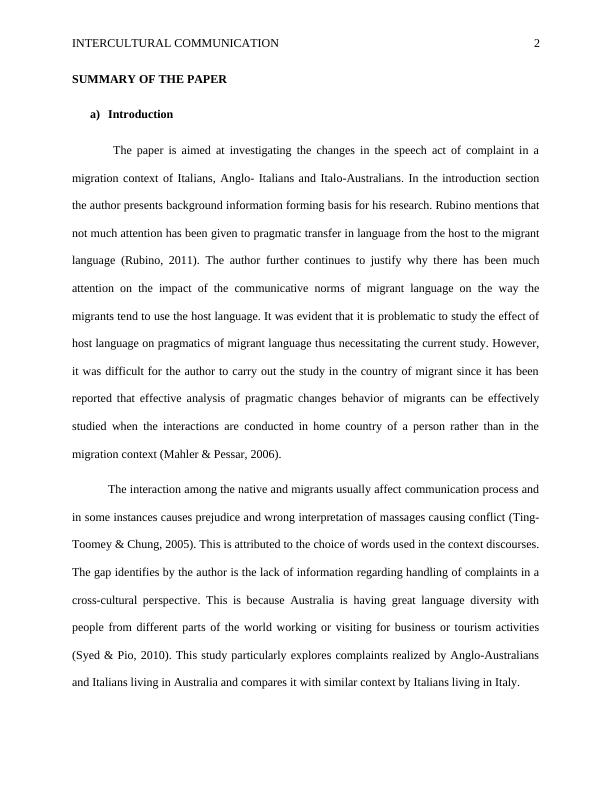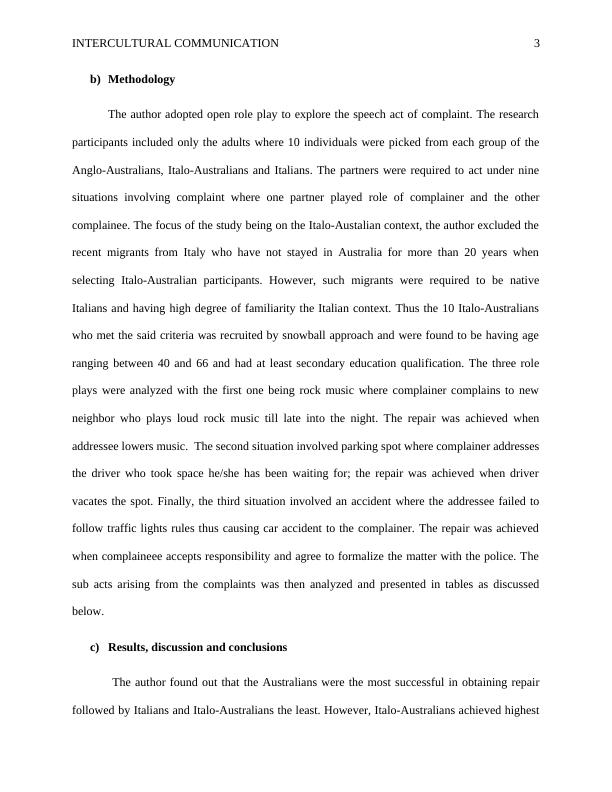Intercultural Communication: Changes in the Speech Act of Complaint in a Migration Context
This research paper explores the changes in the speech act of complaint in a migration context, specifically comparing Italo-Australians, Italians, and Anglo-Australians.
7 Pages1578 Words460 Views
Added on 2023-06-12
About This Document
This paper investigates the changes in the speech act of complaint in a migration context of Italians, Anglo-Italians and Italo-Australians. It explores complaints realized by Anglo-Australians and Italians living in Australia and compares it with similar context by Italians living in Italy. The author adopted open role play to explore the speech act of complaint. The author found out that the Australians were the most successful in obtaining repair followed by Italians and Italo-Australians the least. However, Italo-Australians achieved highest positive resolution in the rock music scene. The paper critiques the methodology section and suggests that the author should have described procedures of recruiting participants in the paper to save audiences time required to seek further information elsewhere.
Intercultural Communication: Changes in the Speech Act of Complaint in a Migration Context
This research paper explores the changes in the speech act of complaint in a migration context, specifically comparing Italo-Australians, Italians, and Anglo-Australians.
Added on 2023-06-12
ShareRelated Documents
End of preview
Want to access all the pages? Upload your documents or become a member.
Intercultural Communication - Doc
|10
|833
|125



